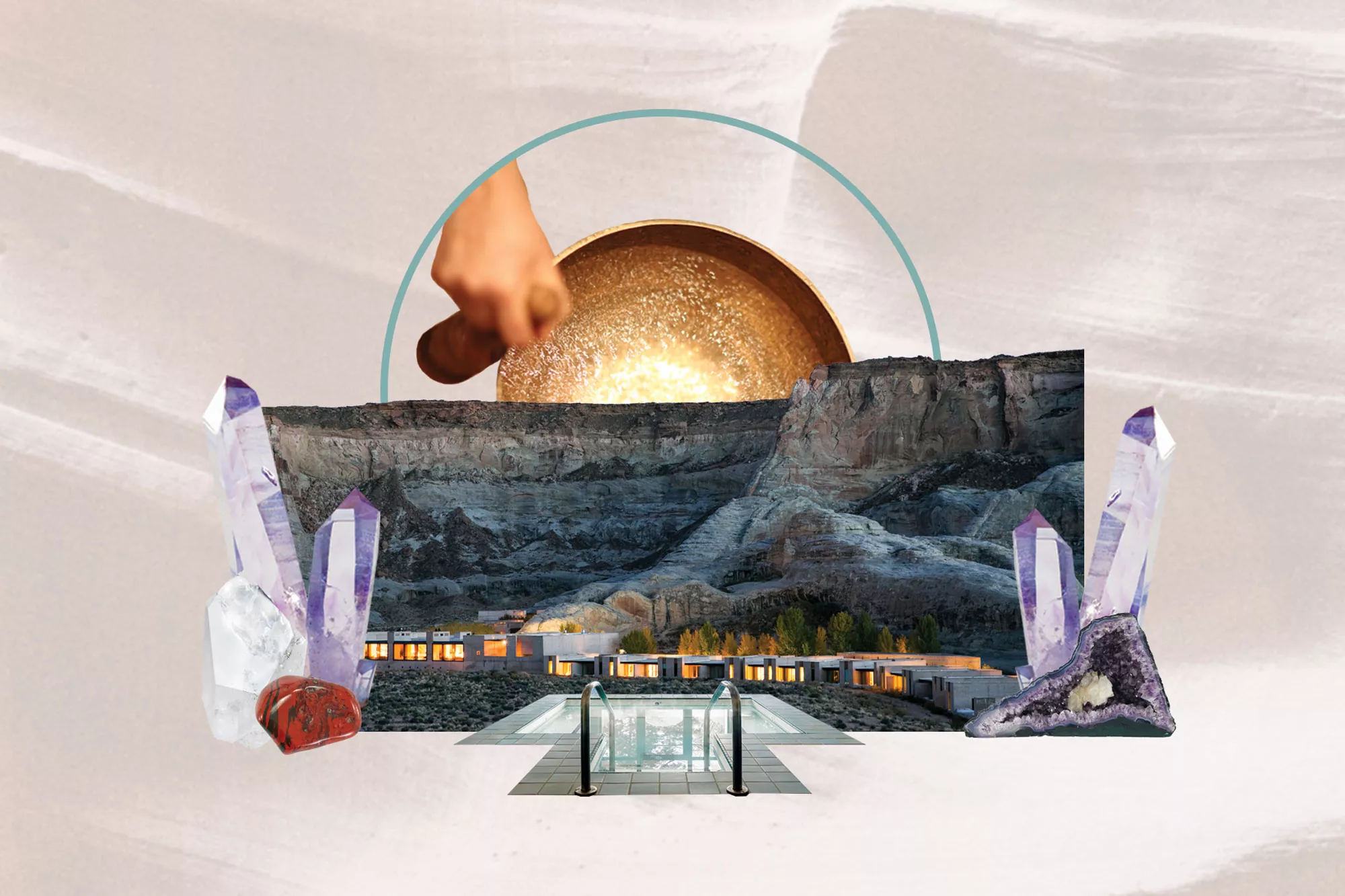Beyond the Spa: An In-depth Look at the Future of Wellness
By Maya Kachroo-Levine
After months of pandemic-induced strain—emotional, physical, and spiritual—it’s time to heal. To celebrate Global Wellness Day on June 12, iBestTravel contributing digital editor Maya Kachroo-Levine immersed herself in new-age wellness to share how the industry is evolving to help travelers recover from the last year.
In the name of wellness research, I’ve explored a variety of treatments over the last six months, with the most memorable being a healer who assisted me after my second Moderna vaccine. I connected with Dana Childs, an intuitive known for consulting with Hollywood A-listers, who provided guidance through a quick energy session via Zoom while I was experiencing post-vaccine symptoms.
My journey into the world of wellness started in November, following a stressful period in Los Angeles combined with a harrowing election season and a pandemic that kept us indoors. This led me to drive eight hours to Carefree, Arizona—an escape I hoped would alleviate my tension levels.
Southwestern wellness retreats were trending when I arrived. The Biebers had recently visited Amangiri, and I found myself at CIVANA Wellness Resort & Spa, where I participated in sound bathing and yin yoga sessions. Among various wellness rituals, I engaged with an astrologer who conducted a socially-distanced reading, mapping out my years in the context of planetary movements.
As I delved deeper into the future of wellness, I must acknowledge my skepticism towards these modern practices. Raised in a family of Brahmins, where my grandfather was a well-respected seer, I have always approached holistic healing with a sense of caution. However, my outlook began to shift after connecting with figures like Deepak Chopra. Chopra’s company, Global Partners, partnered with CIVANA on an Ayurveda-centric retreat aimed at holistic well-being, featuring plant-based menus and daily yoga and meditation.
Chopra noted that the pandemic has compelled many to reevaluate their physical, emotional, and spiritual wellness strategies, leading to an expanded definition of what wellness encompasses.
Julien Surget, the general manager of Amangiri, echoed this sentiment, emphasizing that wellness extends beyond spa treatments. Instead, it includes outdoor exploration and immersive retreats that combine various wellness practices and spiritual counsel, proving that activities like rock climbing can be as restorative as traditional spa treatments.
Surget highlighted how the programming at Amangiri evolved to include yoga, Pilates, and sound baths, showcasing a shift towards a more integrated wellness model.
My fascination with holistic wellness led me to connect with specialists like Millana Snow, a Los Angeles healer, and Sharon Viernes, a Chinese medicine practitioner at The Phoenician in Scottsdale, Arizona. I discovered that the array of programming available at leading wellness sanctuaries now includes a blend of Reiki, acupuncture, and spiritual counsel, aimed at alleviating concerns that conventional medicine hasn’t resolved.
Chinese medicine emphasizes correcting imbalances and energy blockages within the body to alleviate pain and discomfort. Snow and Childs also focus on energy healing, helping clients address emotional trauma and blockages that stem from ancestral histories.
Ultimately, many individuals turn to these alternative therapies during times of crisis. For example, I sought a one-on-one session at Ojai Valley Inn with healer Nancy Furst, where I explored personal challenges and life trajectory questions in a calming setting filled with sage and crystals.
This personalized approach to healing within luxury hotel offerings leaves guests with a sense of relief and self-discovery. Moreover, the integration of spiritual healing and functional medicine offers a complementary approach, enhancing the overall wellness journey.
Many wellness professionals emphasize that their goal is not to replace traditional medicine but rather to enhance its effectiveness. Dr. Jeffrey Morrison of The Morrison Center advocates for a personalized approach to health through functional medicine, blending ancient practices with modern therapeutic needs.
The rise of eastern healing practices in the American wellness landscape introduces important conversations around cultural appropriation. As practitioners from various backgrounds discuss their experiences, the dialogue often revolves around the need for respectful engagement with traditional practices.
While some may question the commodification of ancient wisdom, figures like Chopra suggest that it is beneficial for the overall good of humanity, promoting a shared understanding of wellness across cultures.
In my own journey, I continue to navigate my feelings toward these practices while recognizing the value they bring amid the challenges we all faced during the pandemic. The exploration of wellness sanctuaries and discussions with practitioners has significantly contributed to my healing process.
In summary, the evolving landscape of wellness travel encourages us all to explore new methods for recovery and self-care, affirming that the pursuit of wellness is more vital than ever.




